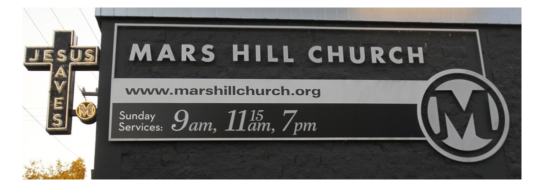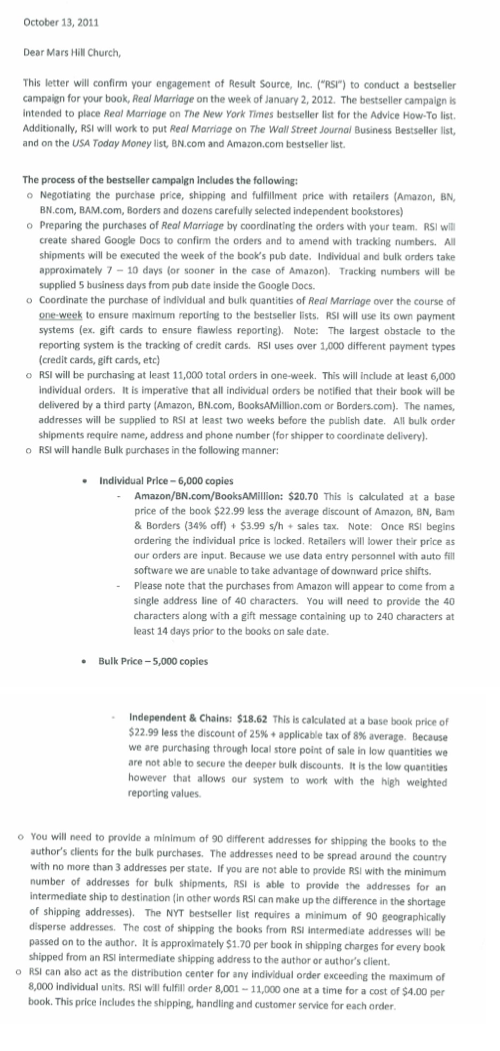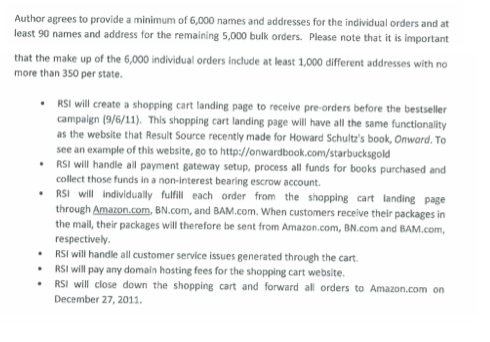Note: This post contains two articles in one. First, I am posting another guest contribution from Becky Garrison, this time highlighting a February 5, 2009 chapel speech at Southeastern Baptist Theological Seminary in Wake Forest, NC where Mark Driscoll presented nine distinctions between the gospel and religion. Those who know Tim Keller’s work will recognize in Driscoll’s sermon a central theme of Keller’s preaching and ministry going back many years. Garrison again raises the issue of plagiarism using Mars Hill’s and Driscoll’s own standards.
Curious about the matter, I listened to the speech and compared Driscoll and Keller. My comparison is presented after Garrison’s article and leads me to believe that Driscoll should have alerted his audience that he was preaching Keller’s themes and in some cases specific points from Keller’s work.
…………………….
Mark Driscoll’s Citation Errors Show Up in Preaching Tim Keller’s Material
By Becky Garrison
Mark Driscoll’s plagiarism in his books is by now well documented. However, the spotlight should now come to his sermons. Case in point: during a speech delivered at Southeastern Seminary on February 5, 2009, Driscoll apparently based the bulk of his talk on the work of fellow megachurch pastor Tim Keller of Redeemer Presbyterian Church (PCA) in Manhattan. An analysis of Driscoll’s and Keller’s nine points expounding on the theme of why the gospel is incompatible with religion reveals that Driscoll’s list contains at least four points that are very similar to Keller’s points. At no time in Driscoll’s talk is Tim Keller mentioned as the originator of this gospel versus religion comparison.
Even though Keller’s book Gospel in Life study guide (Zondervan) summarizing his bullet points did not come out until 2010, Keller has preached on these concepts since at least 2003. Also, in a 2007 letter to Mars Hill Church members, Driscoll discussed seeking counsel with Keller about the difficulties of running an urban church and cited Keller’s work as a resource. Clearly Driscoll followed Keller’s work prior to delivering this 2009 sermon. Three years later, Mars Hill Church’s Resurgence blog posted a downloadable poster of Keller’s work, though they failed to acknowledge Driscoll’s earlier appropriation of this material without proper credit.
To date, neither Redeemer Presbyterian nor Zondervan have responded to emails asking for their response to these latest questions about the authenticity of Driscoll’s sermons. However, in a 2010 interview with The Gospel Coalition, Keller spoke about the problems of preachers who plagiarize in their sermons. “If he takes some preaching theme word for word from someone else, or if all the headings almost in the same words are taken from someone else’s sermon, or if he reproduces an illustration almost phrase by phrase—then he should give attribution.”
Here at his blog, Warren Throckmorton points to the FAQ posted on the Mars Hill Church’s website which concurs with Keller’s assessment.
IF I USE MATERIAL FROM ONE OF PASTOR MARK’S SERMON’S DO I NEED TO CITE HIM AS THE SOURCE OF THAT MATERIAL?
Yes. If you don’t cite him, you are plagiarizing. If you use content from one of Pastor Mark’s sermons or HERE from one of his books, you need to attribute the content (whether it is a quote or paraphrase) to Pastor Mark. Also, even though we make transcripts available of our sermons, this does not mean you can take the transcript and deliver the sermon as though it is your own. This too is plagiarism.
The same answer applies to your use of sermon content from any other pastors and any of our blog posts.
Then on page 105 in his book with Gerry Breshears, Vintage Church, Driscoll said
Do not speak anyone else’s messages. Doing so amounts to plagiarism, unless you get permission…If you use the work of others, you are not a teacher, and you should quit your job and do anything but speak.
All these problems may not seem to be nefarious when viewed in isolation. After all, a quick skim of the vast majority of books and speeches penned by hipster Christian author/speaker/pastors reveals they frequently quote their peers (though unlike Driscoll they tend to at least cross reference each other). However, given the pattern of publishing and preaching misbehavior, a fair question is: when will the Christian publishing industry begin to hold Driscoll accountable for his actions?
Becky Garrison is the author of seven books, including Roger Williams’ Little Book of Virtues, and Red and Blue God, Black and Blue Church. She has contributed to a range of outlets including The Guardian, Religion Dispatches, Killing the Buddha, and The Humanist.
Driscoll’s speech can be viewed here:
Marks Driscoll – Nine Distinctions Between the Gospel and Religion from Southeastern Seminary on Vimeo.
Below I compare Tim Keller’s material with Driscoll’s 2009 speech. Primarily, I provide the main points of distinction presented by Driscoll. He used personal illustrations but the essence of the points appears to come from Keller’s distinction between gospel and religion as demonstrated by the material from three of Keller’s books. Those familiar with Keller’s work may see other ways that the video is similar to Keller’s speaking and writing. At about 9:55, Driscoll introduces his nine ways:
Driscoll: What I want to do is share with you nine ways the gospel and religion are an antithesis and the ways in which they are contradictory and not complementary…
The first is this: Religion tells you in its various forms if you obey then God will love you, if you obey then God will love you. The gospel says, because God loves you, you want to obey Him. See religion says if you try hard enough, if you do better, if you do a good job, then God will love you.
Keller: RELIGION: I obey, therefore I’m accepted. THE GOSPEL: I’m accepted, therefore I obey. (Gospel in Life Study Guide, 16; Gospel Christianity Leader’s Guide, 2-3)
Driscoll: Number two, religion is prone to see good people and bad people…the gospel sees bad people and Jesus.
Keller: Jesus does not divide the world into the moral “good guys” and the immoral “bad guys.”… The gospel is distinct from the other two approaches: In its view, everyone is wrong, everyone is loved, everyone is called to recognize this and change. By contrast, elder brothers divide the world in two: “The good people (like us) are in and the bad people, who are the real problem with the world, are out.” (Prodigal God, 44-45)
Driscoll: Number three, religion is about getting from God. It’s ultimately idolatry. The gospel is about getting God.
Keller: RELIGION: I obey God in order to get things from God. THE GOSPEL: I obey God to get to God, to delight and resemble him. (GILSG, 16)
In religion, we go to God because he is useful for getting the things our heart most wants….In the gospel, we go to God because he is beautiful. We go simply to get God himself. We want to sense his presence and we know that living a life imitating him is the way to do that. (GCLG, 4)
Driscoll: Number four, religion sees hardship as punishment…The gospel doesn’t see hardship as punishment, it sees it as loving correction from a good dad.
Keller: RELIGION: When circumstances in my life go wrong, I am angry at God or myself, since I believe, like Job’s friends that anyone who is good deserves a comfortable life. THE GOSPEL: When circumstances in my life go wrong, I struggle but I know all my punishment fell on Jesus and that while he may allow this for my training, he will exercise his fatherly love within my trial. (GILSG, 16)
Driscoll: Number five, religion is very aware of other people’s sins, the gospel is very aware of my own sin.
Religious people like to confess the sins of others. Gospel people are willing to confess their own sin. Religious people love that plank-speck game. Look, I see in your eyes sawdust. Two by four, out of your head, totally oblivious. Jesus makes fun of religious people, their inconsistency and hypocrisy. That’s why they kill him.
Keller: RELIGION: My identity and self-worth are based mainly on how hard I work or how moral I am, and so I must look down on those I perceive as lazy or immoral. I disdain and feel superior to “the other.” THE GOSPEL: My identity and self-worth are centered on the one who died for his enemies and who was excluded from the city for me. I am saved by sheer grace, so I can’t look down on those who believe or practice something different from me. It is only by grace that I am what I am. I have no inner need to win arguments. (GILSG, 16)
It is important to consider how the gospel affects and transforms the very act of repentance. In religion, the purpose of repentance is basically to keep God happy so he will continue to bless you and answer your prayers. This means that “religious repentance” is selfish, self-righteous, and bitter all the way to the bottom. (GCLG, 4)
Driscoll: Number 6, religion is focused on the external and the visible, how do you look…the gospel is concerned with the heart.
(To me, this seems like an extension of the point before it )
Driscoll: Number seven, with religion, you’re not certain about your salvation…the gospel is about certainty.
Keller: RELIGION: Motivation is based on fear and insecurity. THE GOSPEL: Motivation is based on grateful joy. (GILSG, 16)
Driscoll: Number eight, religion is about self-righteousness. This is the root of all religion. The gospel is about gift-righteousness; this leads to humility…Religion is about me, and how good I am, and how much I do and I do more than you and I give more than you and I’m better than you.
Keller: Religious repentance is self-righteous. The repentance easily becomes a form of atoning for the sin. Religious repentance often becomes a form of self-flagellation in which we convince God (and ourselves) that we are so truly miserable and regretful that we deserve to be forgiven. (GCLG, 4)
RELIGION: My identity and self-worth are based mainly on how hard I work or how moral I am, and so I must look down on those I perceive as lazy or immoral. I disdain and feel superior to “the other.” THE GOSPEL: My identity and self-worth are centered on the one who died for his enemies and who was excluded from the city for me. I am saved by sheer grace, so I can’t look down on those who believe or practice something different from me. It is only by grace that I am what I am. I have no inner need to win arguments. (GILSG, 16)
Driscoll: Number nine, religion results in pride or despair…the gospel leads to holy happiness.
Keller: RELIGION: My self-view swings between two poles: If and when I am living up to my standards, I feel confident, but then I am prone to be proud and unsympathetic to failing people. If and when I am not living up to standards, I feel insecure, inadequate, and not confident. I feel like a failure. THE GOSPEL: My self-view is not based on a view of myself as a moral achiever. In Christ I am “simul iustus et peccator”—simultaneously sinful and yet accepted in Christ. I am so bad he had to die for me and I am so loved he was glad to die for me. This leads me to deeper and deeper humility and confidence at the same time, neither swaggering nor sniveling.
RELIGION: Since I look to my own pedigree or performance for my spiritual acceptability, my heart manufactures idols. It may be my talents, my moral record, my personal discipline, my social status, etc. I absolutely have to have them so they serve as my main hope, meaning, happiness, security, and significance, regardless of what I say I believe about God. THE GOSPEL: I have many good things in my life: family, work, spiritual disciplines, etc. But none of these good things is an ultimate end for me. None of them is something I absolutely have to have, so there is a limit to how much anxiety, bitterness, and despondency such things can inflict on me when they are threatened and lost. (GILSG, 16)
Keller’s works:
GCLG = Keller, T. (2003). Gospel Christianity Leader’s Guide. New York: Redeemer Presbyterian Church.
Keller, T. (2008). The prodigal God: Recovering the heart of the Christian faith. New York: Dutton.
GILSG = Keller, T. (2010). Gospel in Life Study Guide. Grand Rapids: Zondervan.
Unless Driscoll claims he originated this distinction and Keller took it from him, it is hard to see how this is not plagiarism. Perhaps this is the only sermon like this. I don’t know. However, there does appear to be a pattern which should be acknowledged and corrected.
Here is another sermon segment that remixes Keller.



